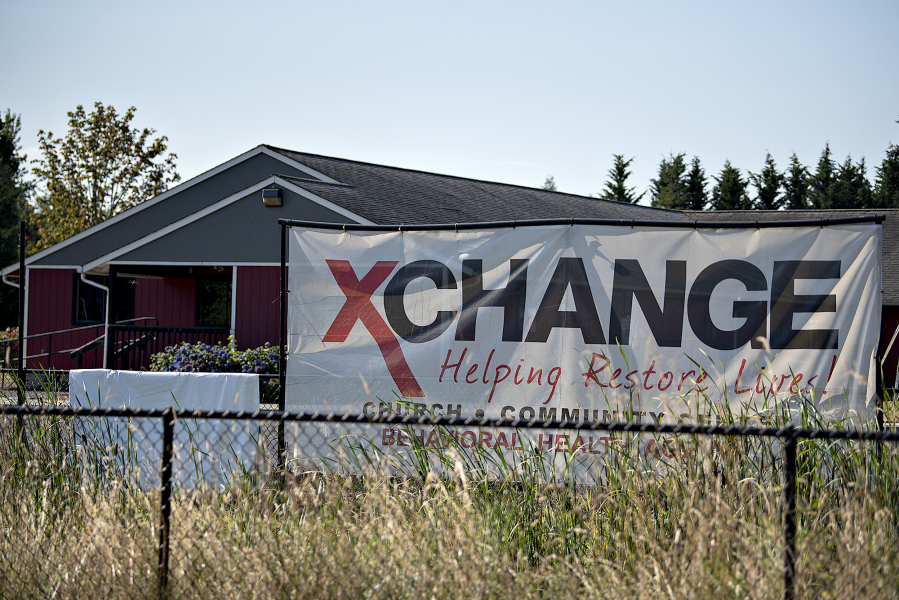While residents experiencing homelessness and housing leaders recognize the issues preventing the unhoused from accessing health care, some have taken matters into their own hands and made care more accessible.
Twice a year, Couve Collective hosts pop-up clinics where local street medicine teams gather to help residents experiencing homelessness. On other days, outreach teams with Columbia River Mental Health, Lifeline Connections, Share and XChange Recovery, among others, bring care to people on the streets.
Lauryn Sanders, mobile services manager for the Columbia River Mobile Health team, said the street program works in conjunction with other resources in Clark County.
The outreach team is a program that strives to eliminate barriers to accessing mental health services, substance screenings, and basic medical care for people experiencing homelessness.
Sanders said the team consists of five members: a physician assistant, case managers, a nurse and clinician, which is a mental health therapist who can provide assessments in the field. The team is hiring for the nurse and clinician positions.
She said the team uses a client-first, trauma-informed focus to strengthen relationships between unhoused people and medical providers.
“That first initial positive experience of not being judged and feeling heard, and someone concerned about (them) really fosters that rapport building,” said Sanders.
Other service providers are following suit. Lifeline Connections has a Homeless Outreach Stabilization and Transition, or Host, team, which provides behavioral health help to people experiencing homelessness. Share of Vancouver has an outreach team that serves clients with mobility, physical and mental health concerns, and XChange Recovery has a street medicine team made up of practitioners, peer support, nurses and other volunteer medical professionals who provide care to people living outside.
“We want to crush that stigma and get our nurses and doctors out into the homeless camps and get them serving there, where (people) are at,” Jacob Phillips, medical outreach coordinator at XChange Recovery, said during a recent Hands Across the Bridge event.
“And just to show there is love, where there’s no stigma and that we’re wanting to come to you because if we can meet the most basic of health needs first, then that builds relationships and people are willing to take that next step further.”
But while outreach teams fill gaps, they are limited too.
“There’s a lot of need out there,” said Sanders, who said despite serving all of Clark County, they tend to find themselves stuck in Vancouver because the demand for care is so high.
Care for insured and uninsured
The Apple Health and Homes program launched in Washington last year, and provides housing and other health care necessities to people with physical and mental health challenges. The program uses Medicaid dollars to pay for housing assistance and tenant resources.
“This is a novel approach that the state of Washington is doing … providing housing for some of the most needy people,” said Dr. Richard Kubiniec, medical director at Sea Mar. “I think what will follow is a model that is going to be adopted elsewhere.”
PeaceHealth partners with Vancouver Housing Authority to provide medical care at permanent supportive housing locations and Share of Vancouver provides medical respite shelter beds.
However, there are challenges for some to receive insurance, especially involving computer access. Free clinics for the uninsured are available across Clark County. Rebecca O’Brien, executive director of Free Clinic of Southwest Washington, said that high-quality care is still available for residents without insurance. Free clinics offer primary care, dental care, and can work with clients to get medication for lower rates or free.
“I just want to remind folks in the community that there are resources available for individuals who are uninsured or low income, or maybe feel like health care services are not available to them for whatever reason,” said O’Brien.
Mia Ryder-Marks: 360-735-4547; mia.ryder-marks@columbian.com; twitter.com/miarydermarks





